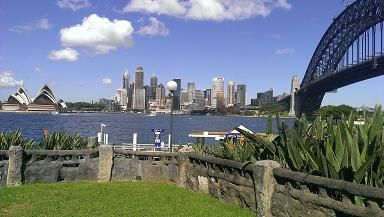Sydney approves landmark sustainability plans
Sydney has launched three major programmes to boost energy efficiency, residential building sustainability and climate change adaptation measures

Sydney has launched three major programmes to boost energy efficiency, residential building sustainability and climate change adaptation measures.
Sydney City councillors approved the Energy Efficiency Master Plan, Residential Apartments Sustainability Plan and the Climate Change Adaptation Strategy on Monday.
The energy efficiency project will cost an estimated $400 million but could save more than $600 million in energy bills by 2030.
The plan first was drafted in February and the final version shows that the building sector could save 31 per cent of its energy use.
The approval follows a Council of Australian Governments (COAG) agreement to increase Australia’s energy productivity by up to 40 per cent by 2030.
Sydney Lord Mayor Clover Moore said: “All levels of government need to work together to combat climate change… I’m pleased with the recent decision by the Council of Australian Governments to adopt a national energy productivity plan that reflects many aspects of our own plan to make more efficient use of energy.”
Moore added: “By retrofitting swimming pools, community centres and libraries for optimum energy efficiency, we have reduced greenhouse gas emissions across the City’s buildings by 29 per cent. We now want to see these savings expanded across the entire city.”
The council also approved the Residential Apartments Sustainability Plan, which is designed to reduce the environmental impact of apartments.
As part of the apartments plan, the City will work towards higher Building Sustainability Index (BASIX) standards, investigate BASIX certificates, pilot Electronic Building Passports and create a High-Rise Leaders Retrofit Program for existing buildings.
Officials are also aiming to introduce a rating system for residential buildings promote upgrades and enhance energy and water-efficiency.
Moore said: “The number of apartments is increasing, but the minimum sustainability targets for new apartment buildings are much lower than for new houses… Retrofitting buildings can be costly, so it’s better to include higher sustainability standards at the design stage. Prospective buyers of new apartments should be shown a BASIX ratings certificate, so they can be aware of how well the building performs environmentally. We’ve already seen how buildings with better sustainability standards can reduce bills for owners and tenants in the long run, and this is a major selling point for new apartments.”
Sydney has secured a $300,000 grant from the U.S. Urban Sustainability Directors Network to implement the High Rise Leaders Retrofit Program, which aims to make existing apartment buildings more sustainable.
Moore added: “The community wants higher environmental standards in new apartment buildings and has asked us to encourage developers to increase their sustainability goals by offering incentives for water-saving devices, solar panels and bicycle parking in new buildings.”
Sydney will also introduce the Climate Adaptation Strategy in partnership with prominent science groups, and the business and property sectors.
The strategy features 39 actions to help the city deal with predicted impacts of climate change including rising sea levels and heatwaves.
Moore said: “We are frustrated by the lack of political leadership nationally to reduce greenhouse emissions, but we are taking steps to adapt and reduce our vulnerability to climate change… Temperatures in Australia have already risen on average by one degree and by 2070, temperatures could have increased by over three degrees. We need to prepare now. As our climate changes, the hottest days will become hotter, more frequent and last longer, leading to strain on vital infrastructure, community health and air quality.”


